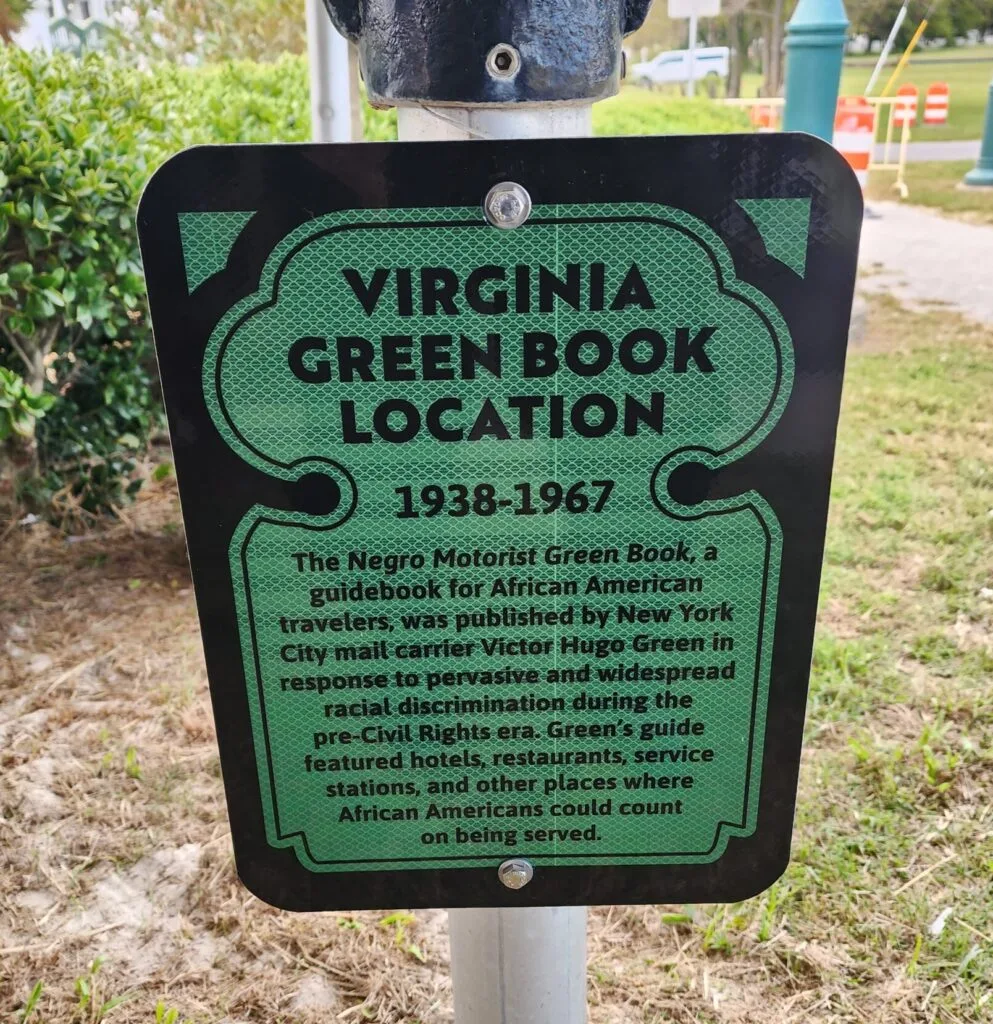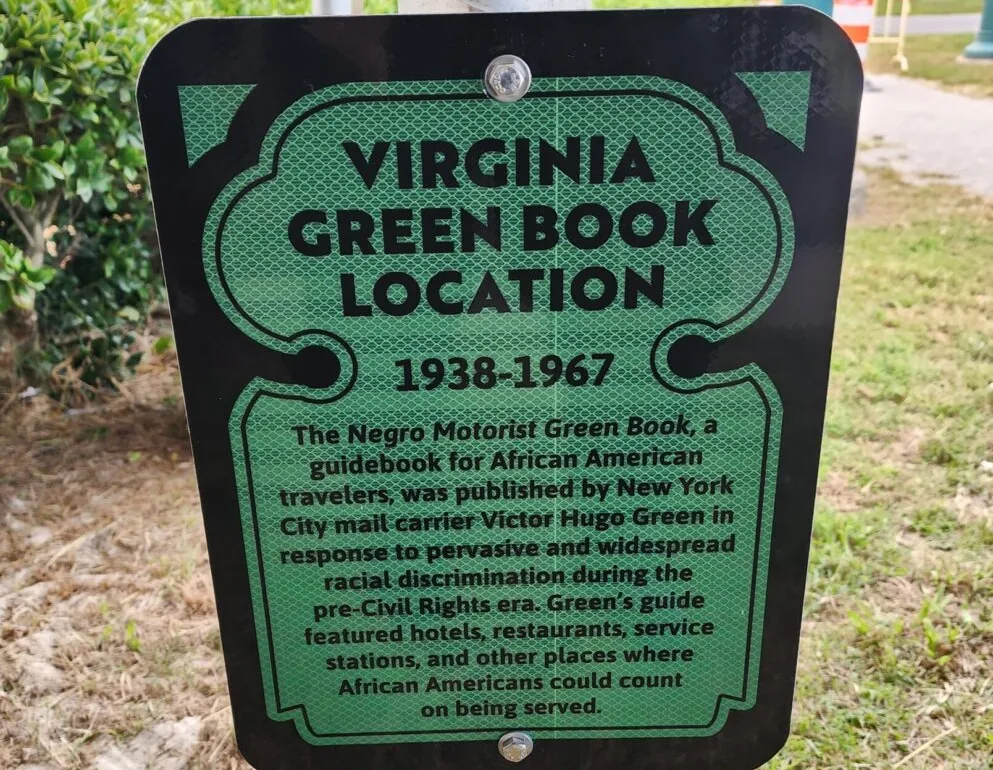
RICHMOND, Va. — Many groups are involved with the effort to attract Black tourists to Virginia, through a showcase of history and spotlight on Black-owned business.
Virginia has a sordid history with African Americans, including slave auctions, longstanding commemoration of the Civil War and housing the capital of the Confederacy, and a white supremacy rally just six years ago in Charlottesville.
In fact, the top association Black travelers have with Virginia is its history, according to research sponsored by the Virginia Tourism Corp. The word “historic” was the top word associated with the state, by respondents from around the world. The tourism agency wanted to better understand the experience of Black travelers.
When it comes to safety, 65% of U.S. Black travelers said they felt safe, according to a survey conducted in 2020 by the Black Traveler. A majority of those who said they would not feel safe attributed it to not feeling “welcome or wanted.”
So how does a tourism campaign assure Black travelers that the state is not only a good destination, but a safe one?
___
Black-led tourism initiatives
The Virginia Tourism Corp. Heart and Soul campaign helped win the U.S. Travel Association’s most prestigious Mercury Award in August. The corporation has won the designation 14 times, including last year for their promotion of safe travel with the WanderLove campaign.
The Heart and Soul campaign launched last year to promote Virginia as a welcoming and safe state for Black travelers.
“You want to know that you’ll have people that also look like you,” said Liza Mickens, spokesperson for the campaign. “Heart and Soul was really birthed out of that idea of having influencers that represent the state talk about where they’re from.”
Last year, the campaign reached 8 million people through banner ads and paid media with the bi-monthly travel magazine Route, according to Mickens.
Virginia’s rich history establishes the state as a destination for Black travel, according to Mickens.
“Virginia has such a nuanced history,” Mickens said. “I think that it’s so important for us to talk about all history and to talk about the fact that this is really the birthplace of Black culture in the country.”
Richmond Region Tourism partnered in 2019 with a network of community organizations to create BLK RVA, a localized version of the statewide Heart and Soul campaign. It is an online hub that features guides from history trails to Black-owned restaurants and shops throughout the region.
“We’re all about changing the perception and elevating the great things that we do have here,” Tameka Jefferson said, the community relations manager at Richmond Region Tourism.
Black travel is on the rise nationally, as is all travel since the height of the pandemic, according to Jefferson. Travel data overall shows an uptick in Virginia hotel and restaurant business.
“We’re making connection with local businesses, making sure they know that we are here as a resource for them to market and promote their business locally and nationally for free,” Jefferson said.
___
Black history, culture and restaurants
BLK RVA has done a lot for the region, through the combination of acknowledging Virginia history and highlighting its present business owners, according to Jefferson.
“What we tried to do here is, by showcasing that 1 in 4 African Americans can trace their ancestry back to the city of Richmond, specifically,” Jefferson said. “We wanted to make sure we not only talk about the past, but also elevate and highlight the rise and future.”
Kelli Lemon is a board member of the Virginia Tourism Corp. and owns the cafe Urban Hang Suite in downtown Richmond. She is more than excited to grow the love for Virginia and Richmond alike.
“Twenty-odd Africans came out of the water in what we know as Hampton, Virginia,” Lemon said. “It started Black culture, it started entrepreneurship. It started travel. It started all things food, hospitality; all things that I feel like I love.”
Her cafe was birthed out of the need for more Black food and hospitality spaces, Lemon said.
“How are we gathering the Black culinary industry together to celebrate all things food when at the time the food and beverage industry within this area was booming — making national awards —but the recognition was not spread out the way that we wanted to see it,” Lemon said.
As a board member she brings her knowledge of central Virginia to the tourism industry. A seat at the table has given her the ability to take state-level information and give it back locally, Lemon said.
“I can pour that back into you know, any of the entities that are being very intentional about what they’re doing in order to make sure people are coming to visit Virginia,” Lemon said.
Lemon helped launch the Richmond Black Restaurant Experience, which started as Black Restaurant Week in 2017.
The Mercury Award is evidence that Virginia has made great changes to accommodate the Black traveler, according to Lemon.
“It allowed the industry, or more so the traveler, to know that the state of Virginia is being very intentional about making sure that when you come to this area that we have these experiences for you,” Lemon said.
When it comes to safety, Lemon acknowledges that Virginia’s history can be a deterrent for many Black travelers.
“The whole story wasn’t being told,” Lemon said. “Virginia has a very complicated past and present.”
If 1 in 4 Black people can trace their roots to the state of Virginia then why would they not come here, Lemon asked.
“Why wouldn’t you come see where you were born? Where Black culture was born?” Lemon said. “Because you didn’t feel safe here.”
___
Marking history
Former Gov. Ralph Northam three years ago announced that new markers would be installed around the state to highlight people, places, or events tied to African American civil rights, education, health, or Civil War and Reconstruction-era history. The state’s historical highway marker program first launched in 1927 and at the time of Northam’s announcement there were approximately 2,600 markers installed.
The state started to erect historical markers around Green Book locations. A travel guide known as the Green Book helped guide Black travelers to safe lodging and restaurants during the Jim Crow era. Many of the Virginia locations in the book have since been demolished or forgotten.
The very first historical marker went up last month in Hampton for the Bay Shore Hotel, according to the Hampton website. The hotel was created in the late 19th century for Black travelers who were not allowed to visit Buckroe Beach. Travelers could access an amusement park, restaurant and music hall, which hosted performers such as Louis Armstrong, Count Basie, Duke Ellington and Ella Fitzgerald.
The Virginia Tourism Corp. partnered with the Department of Historic Resources to place the marker, a partnership established through the General Assembly.
To create the Green Book network throughout the state, interstate exit signs will be updated to note the historic spots. Green signs are put on historic markers already connected to Green Book properties. Future markers will also be installed, and can be requested on the DHR site.
It is part of an effort to promote a “more authentic experience” for travelers, the agency said.
“At the end of the day, we all want new experiences,” Mickens said. “The point of tourism is to just try new things and to travel.”
VCU InSight journalist Payden Wilson contributed to this report.
Capital News Service is a program of Virginia Commonwealth University’s Robertson School of Media and Culture. Students in the program provide state government coverage for a variety of media outlets in Virginia. VCU InSight is the capstone broadcast news program.



